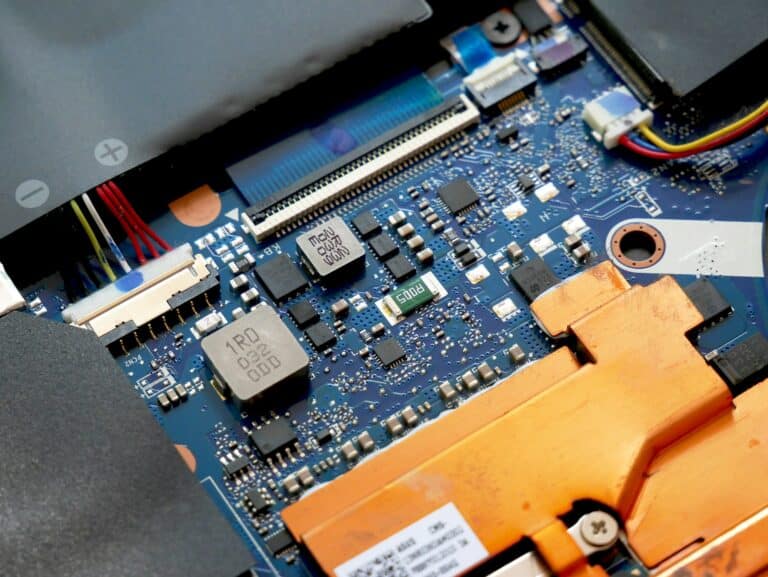Businesses today face the growing challenge of managing electronic waste, commonly known as e-waste. With rapid technological advancements, many companies regularly replace old devices with newer models. This constant cycle results in a growing pile of unwanted electronics that end up as waste, contributing to pollution and resource depletion.
E-waste is not just an environmental issue. It can also affect a company’s bottom line. Investing in sustainable practices for managing and reducing e-waste is crucial for both ecological and economic reasons. Properly disposing of electronic devices reduces the harmful impact on the environment and can also cut costs over time.
Embracing new strategies and implementing effective practices can significantly diminish the volume of e-waste produced by businesses. By focusing on sustainable IT strategies, companies can not only help protect the planet but also foster a positive image and ensure a more efficient use of resources. This proactive approach lays the groundwork for a cleaner and more sustainable future.
Understanding the Impact of E-Waste
E-waste is one of the fastest-growing waste streams in the world. The environmental and health effects of electronic waste can be severe. Devices like computers and phones may contain harmful substances such as lead, mercury, and cadmium. When these gadgets end up in landfills, these toxic materials can leach into the soil and water, affecting wildlife and nearby communities.
This contamination can lead to health problems for humans, including respiratory issues and even cancer. Moreover, the production and improper disposal of electronic devices contribute significantly to carbon emissions, which impact climate change.
E-waste can also have significant economic implications for businesses. Handling e-waste responsibly may seem like an additional cost, but it’s actually beneficial in the long term. Poor e-waste management can lead to hefty fines due to non-compliance with environmental laws. By adopting sustainable practices, companies can avoid these penalties and enhance their reputation as environmentally conscious organizations. Additionally, recycling certain materials from e-waste can lead to cost savings and even generate revenue by reclaiming valuable components.
Implementing a Sustainable IT Strategy
Adopting a sustainable IT strategy begins with caring for the devices you already own. Regular upgrades and maintenance can prolong the lifespan of technology, reducing the need for constant replacements. Routine checks and efficient use of devices keep them running longer, which is a simple but effective way to reduce e-waste.
Selecting energy-efficient devices is another aspect of a sustainable IT approach. Energy Star-rated products, for example, use less power, which reduces energy bills and lessens the environmental impact. These devices are designed to have longer lifespans and are often easier to recycle.
Proper planning for product lifespan and durability is also key. Businesses can select devices known for their resilience and potential for longer use. By focusing on future-proof technology, companies avoid frequently buying new equipment, thus reducing e-waste.
Creating a detailed IT policy that emphasizes sustainable purchasing practices supports these efforts. Encouraging employees to maximize the potential of existing equipment and to consider energy-efficient replacements ensures the organization remains committed to minimizing its e-waste footprint.
Best Practices for E-Waste Reduction
Reducing e-waste requires practical steps that businesses can easily integrate into their everyday operations. One effective way is to minimize waste generation at the source. Implementing a policy where employees are encouraged to report and repair malfunctioning devices instead of outright replacing them can significantly cut down on e-waste.
Another impactful strategy is to encourage the use of refurbished equipment. Refurbished devices not only extend the life of electronics but are also more cost-effective. They undergo thorough testing and upgrades, making them reliable for use once again. This approach helps in conserving resources and reducing overall waste.
Establishing policies for reuse and resale of old equipment is beneficial as well. Companies can set up internal programs where old devices are reassigned for less intensive use cases. Alternatively, selling usable machines can recuperate some costs while decreasing e-waste. These practices promote a culture of sustainability and resourcefulness within the organization.
Partnering with Professional E-Waste Recyclers
Choosing the right e-waste recycling partner is an important step in ensuring safe and responsible disposal. To select the right partner, businesses should consider factors like certifications and compliance with environmental regulations. Look for recyclers with recognized certifications such as R2 or e-Stewards, ensuring adherence to high standards of ethical recycling.
Understanding the recycling process of your chosen partner can provide insight into how your waste is handled. Ask about how they dismantle, recycle, and repurpose materials. This transparency reassures companies that their e-waste is processed correctly and ethically.
Ensuring compliance and data protection during disposal is a critical concern for all organizations. Collaborate with recyclers who offer secure data destruction services, such as hard drive shredding, to protect sensitive corporate information. This not only secures company data but also ensures that businesses remain compliant with data protection laws.
Conclusion
E-waste reduction is essential for protecting our environment and optimizing business operations. By understanding the impact of e-waste, companies can implement sustainable IT strategies that extend the life of their equipment and reduce unnecessary waste. Adopting best practices such as repairing, reusing, and reselling technology further diminishes e-waste output.
Partnering with professional e-waste recyclers provides businesses with the resources and expertise needed to safely and responsibly dispose of electronics. Certified recycling partners ensure that devices are dismantled and recycled properly, keeping toxic materials out of landfills.
To make e-waste management even easier, ReWorx Recycling offers comprehensive services that cover every stage of your e-waste disposal in Sacramento. Whether it’s through secure data destruction or eco-friendly recycling methods, ReWorx Recycling can help your business navigate the complexities of e-waste reduction. Partner with ReWorx Recycling today for a sustainable and secure solution to your e-waste challenges.


